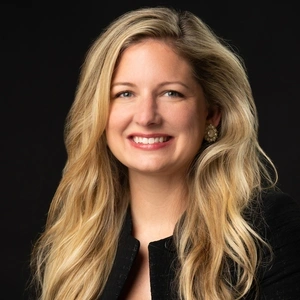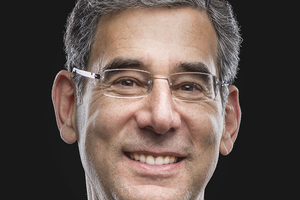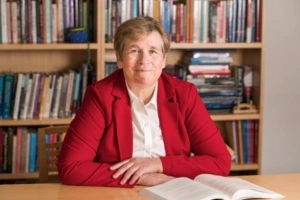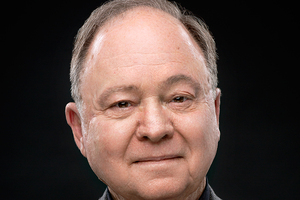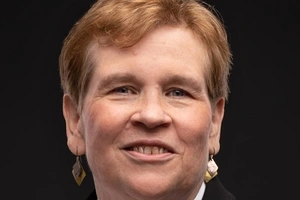Faculty Expert
-
Rebecca A. Maynard
Professor Emerita of Education and Social Policy
The Institute of Education Sciences has made Penn GSE home for two prestigious programs focused on preparing the next generation of scholars to conduct data-driven research about schools, children, and families.
Rebecca Maynard and Brooks Bowden will lead the Predoctoral Training Program in Interdisciplinary Methods for Field-Based Research in Education. This $4.5 million project will prepare doctoral student fellows, drawn from across the Penn campus, to conduct research that informs education policy and practice. The program emphasizes collaborative partnerships with prominent education agencies and research organizations to provide fellows with rich and varied experiences that will strengthens their preparation to become leaders in the education research workforce.
The fellows, selected from Penn GSE as well as Penn’s School of Arts and Sciences, Social Policy and Practice, Wharton, and the Annenberg School for Communication, will participate in an interdisciplinary core curriculum, conduct research with faculty and industry mentors, and apprentice with an education agency focused on questions of policy and practice.
A separate $799,847 grant will fund a series of training programs led by Bowden that will prepare researchers and analysts at state and local agencies to examine the cost effectiveness of education interventions.
“I am so proud that IES has chosen to bring these programs to Penn GSE,” said Dean Pam Grossman. “Rebecca and Brooks are creating programs that will give a new wave of scholars the tools to answer crucial questions about how we can improve education for every child.”
Maynard, a Penn GSE Professor Emeritus, directed a previous iteration of the Predoctoral training program at Penn GSE, from 2004 to 2015. A standout alumnus of that program is Penn GSE’s newest faculty member, Michael Gottfried, who developed his research focus on education while participating in the fellowship as a Wharton doctoral student.
“We put together doctoral students in economics, sociology, communications, anthropology, criminology, and it just broadened their horizons,” Maynard said. “Each brought different things to the table, and they created a very strong peer network that still networks to this day. Fellows will receive a much broader exposure to research methods and to professionals inside and outside of Penn who are working on educational evaluations, and they will have many opportunities to present their work in professional settings.”
“The program is designed to introduce more education researchers to research tools used in other fields, and to introduce students training in other disciplines to the pressing questions of policy and practice in education,” Bowden said.
With partners like the North Carolina Department of Public Instruction, the School District of Philadelphia, Penn’s Netter Center, Abt, AIR, Mathematica, and MDRC, fellows will have the chance to work on real-world issues.
With the support the fellowships provide students, Bowden and Maynard want to help diversify the field of education research.
‘One of the most important things I did as a grad student’
There was a moment during his doctoral studies at the Wharton School when Michael Gottfried realized the economic and business models he was studying could be applied to improving outcomes for students.
“I remember being in a corporate strategy class, and we were looking at a stakeholder flowchart, and thinking, this could apply to a large school district,” Gottfried said. “With the right data, you could answer a lot of really interesting questions.”
Gottfried, who has just joined Penn GSE as an Associate Professor in the Education Policy division, applied to, and was selected as, an IES predoctoral fellow. Through the program, he met people from across the university who were interested in similar problems but approached them in very different ways.
His cohort sat in on weekly talks from people from across the field, had opportunities to present at conferences, and were introduced to the people leading research centers and shaping education policy.
“I would say it was one of the most important things I did as a grad student,” he said. “They are building up your toolset and giving you opportunities that I don’t think you would find on your own as a grad student.”
Training researchers to consider the upside of cost
Some people avoid talking about costs and efficiency in education because it can give the impression, often wrongly, that the focus is cutting funding for schools.
In reality, Bowden said, “this approach is intended to inform policy by examining the resources needed to successfully educate students and to improve their long-term outcomes. Every approach requires resources that are not infinite, such as teacher time, volunteer support, materials, and space. Cost-effectiveness analysis is a tool that builds upon knowing if an approach is effective to better understand what resources went into that successful impact. Cost-effectiveness allows school leaders and policymakers to explore which approaches offer the best outcomes for the resources required.”
Because costs are a critical aspect to successful policymaking, IES and other major research funders are requiring that costs be measured in many of their grants. Bowden and the training team produced briefs this summer with plans to provide more support throughout the grant.
With her second grant, Bowden will hold training programs for PhD-level researchers working in academia or state or local education policy who are seeking IES grants. These first of these sessions, which will be similar to an IES training program she directed while at Columbia University, will be in the summer of 2021.
“Many researchers don’t have a conceptual framework for analyzing cost effectiveness,” Bowden said. “There can be a fear that when we talk about costs, it’s because we want to cut costs. If anything, we need to talk about costs more in our studies, so researchers and policymakers can become creative in how they design and implement interventions.”
In previous years, these three- and five-day training workshops proved to be very powerful for attendees.
“From the first days, it was so clear that trainees would take concepts of economic evaluation back to their jobs and change their approaches right away,” Bowden said.

